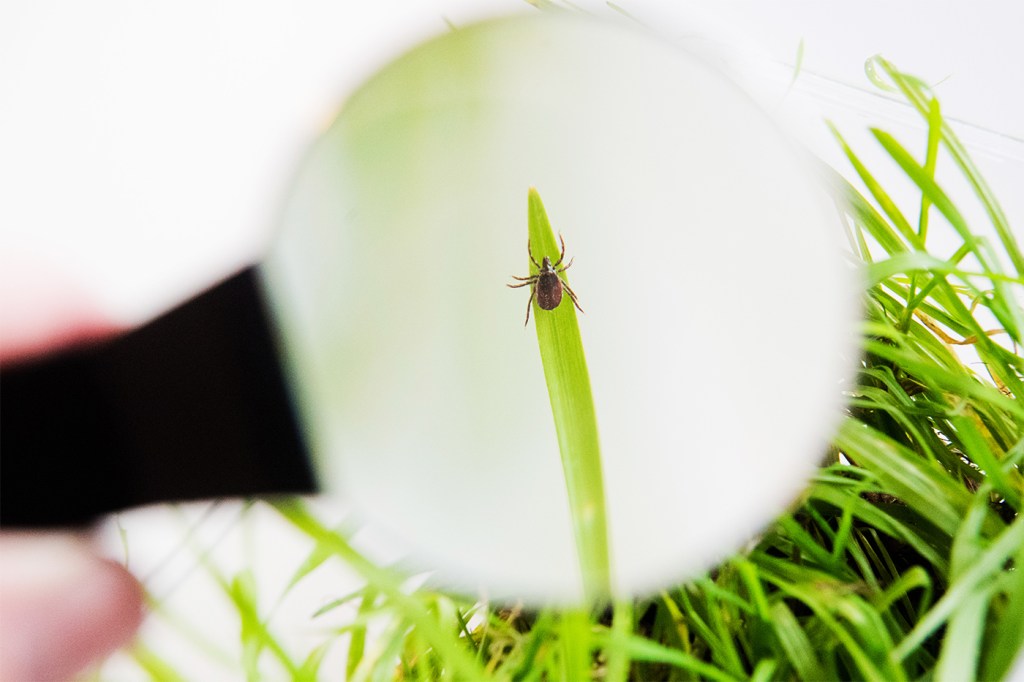Will the new vaccines prevent Lyme disease? And when will they be available?

Cases of Lyme disease are exploding across the United States, but don’t expect a magic bullet against the tick-borne illness to arrive any time soon.
Issues with clinical trials of a new Lyme vaccine being developed by Pfizer and Valneva mean that the VLA15 vaccine is not expected to be submitted for full FDA approval until 2026—one year later than Pfizer originally anticipated.
With an as-yet unknown efficacy level and a delivery system involving three shots and a booster, the greatly anticipated Lyme vaccine—the only one currently in clinical development—may face some challenges being implemented in the general population, Northeastern University experts say.
Need is great
The interest in preventing Lyme disease, which is transmitted by the bite of the deer tick, has never been higher.
The Centers for Disease Control says cases of Lyme disease have doubled since 2000 to nearly 500,000 a year as it spreads across the U.S.
“The number of counties considered high-risk for Lyme disease has tripled,” according to Dr. Paul Mead, chief of the National Center for Emerging and Zoonotic Infectious Diseases bacterial diseases branch.
“It’s a very good idea to develop a vaccine,” says Kim Lewis, Northeastern distinguished professor of biology and director of the university’s Antimicrobial Discovery Center.
In its acute state, Lyme can cause fevers and chills, joint pain, headache, muscle aches and is frequently accompanied by a rash.
Late stage or post-treatment Lyme can result in sufferers experiencing life-altering fatigue, pain and brain fog, and even cardiac issues.
“If we have a vaccine for Lyme disease, then we would have the opportunity to provide individuals with immunity against an illness that potentially could be serious,” says Neil Maniar, director of the master of public health program at Northeastern.
Efficacy unknown
While many people are interested in a vaccine to avoid Lyme and its complications, a lot will depend on how effective the Pfizer vaccine proves in clinical trials and in practice, says Lewis, who is developing an antibiotic treatment for Lyme he hopes will prevent post-treatment symptoms.
Vaccine efficacy is of particular importance since the Pfizer trials require participants to have three shots and a booster, which is a big commitment of time and planning.
“We don’t know the efficacy yet,” Lewis says. “If the vaccine requires three shots and is 60% protective, I’m not sure how many people would want to go through the procedure. If it’s 80 to 90% protective, then people will say, ‘I’ll go and get it.’”
Earlier Lyme vaccine withdrawn
The first-ever Lyme vaccine for humans, LYMErix, was withdrawn in 2002 after sales fell in the wake of a class action lawsuit against GlaxoSmithKline amid claims the innoculations had caused arthritis in people who had been vaccinated.
Data from the FDA did not bear out the claims, says Brandon Dionne, associate clinical professor in Northeastern’s School of Pharmacy and Pharmaceutical Sciences.
But he anticipates that concerns about potential side effects will also have an effect on whether people get the new Lyme vaccine.
“If they’re the type of person that goes out hiking or takes their dogs for walks, in areas where there are a lot of ticks, it may be worth it for them,” Dionne says.
He says VLA15 works by targeting an outer surface protein of Borrelia burgdorferi, the bacterium that causes Lyme disease. The vaccine blocks the protein, OspA, which prevents the spiral-shaped bacterium from being able to leave the tick and infect any humans it has bitten.
Clinical trial delays
“You could have a really good vaccine on the market, but will people take it? Will people trust it?” Maniar asks.
Part of the role of the clinical trial is to understand the full spectrum of side effects and ensure the vaccine is going to be effective, he says.
The phase three clinical trial of VLA15 in human subjects has already run into some problems.
In February, Pfizer and Valneva pulled half of the study subjects out of the trial after good practice violations were discovered at some U.S. sites run by a third party, Care Access, according to fiercebiotech.
Although the nature of the violations has not been disclosed, the need to disenroll study subjects and enroll new participants means that instead of seeking full FDA approval for VLA15 in 2025 as reported earlier, Pfizer plans to apply for license approval in 2026.
The trial enrolled study subjects who live in Lyme endemic areas and have outdoor lifestyles that could put them at risk of the tick-borne infection.
It’s important to develop vaccines as climate change contributes to the spread of Lyme disease and makes tick exposure an issue in warmer winter months as well as spring, summer and fall, Maniar says.
“The level of exposure is only going to increase. It’s not going to go down,” he says.
Cynthia McCormick Hibbert is a Northeastern Global News reporter. Email her at c.hibbert@northeastern.edu or contact her on Twitter @HibbertCynthia.






